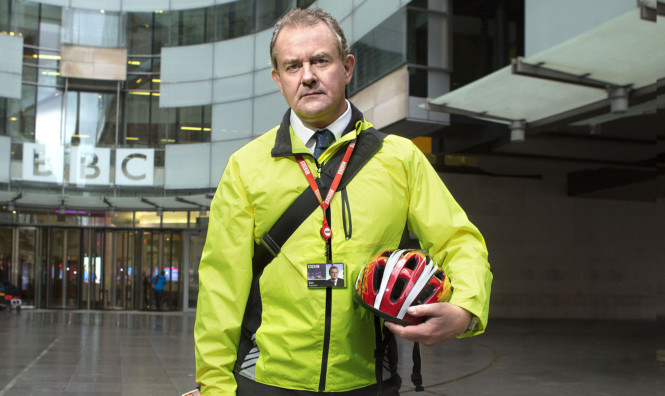
It’s totally not bad so that’s all good.
I was in a meeting a couple of weeks ago that was interrupted by a guard announcing that the train that one of the people in “attendance” was travelling on was now approaching Stevenage.
The advent of conference calling has meant that office-based workers from Aberdeen to Zanzibar and Stevenage can be present at the same meeting. It has also meant people call a lot more meetings.
It’s that culture that W1A taps into so well. No decision can be made without running it past six other people first, but the more you open out the debate, the less likely you are to get anything decided.
Wednesday’s episode opened with a meeting as BBC’s new Head of Values, Ian “So that’s all good” Fletcher, asked a middle-management thinktank to write down the first word that came into their head when they thought of the BBC.
Nonsensical publicist Siobhan Sharpe (“You don’t sell crab cakes in a sausage factory”) kept crossing out the first word that came into her head to come up with a better one but was sufficiently invigorated by the task to call another meeting with her underlings at Perfect Curve.
After brainstorming what fruit best represents the “British Broadcasting, like, Company,” the meeting ended with them deciding that the BBC logo had too many letters in it.
It’s in these moments that W1A is at its best, and there are signs that it’s beginning to hit its stride with characters such as Tracey Pritchard, who begins every sentence with “I don’t wish to be rude” or “I don’t want to be funny” before being rude (and funny).
But there’s an uncomfortable feeling to watching W1A that didn’t exist with its predecessor, Twenty Twelve. That perfectly tapped into the British psyche of hoping for the best but fearing the worst about the organisation of the London Olympics.
We might have felt differently had we been sent the bill for it in the post. But the BBC flagellating itself before licence payers’ eyes leaves us not knowing where to look.
The fruit which best represents my viewing of W1A is gooseberry, which is not good at all.
W1A BBC2, Wednesday.

Enjoy the convenience of having The Sunday Post delivered as a digital ePaper straight to your smartphone, tablet or computer.
Subscribe for only £5.49 a month and enjoy all the benefits of the printed paper as a digital replica.
Subscribe